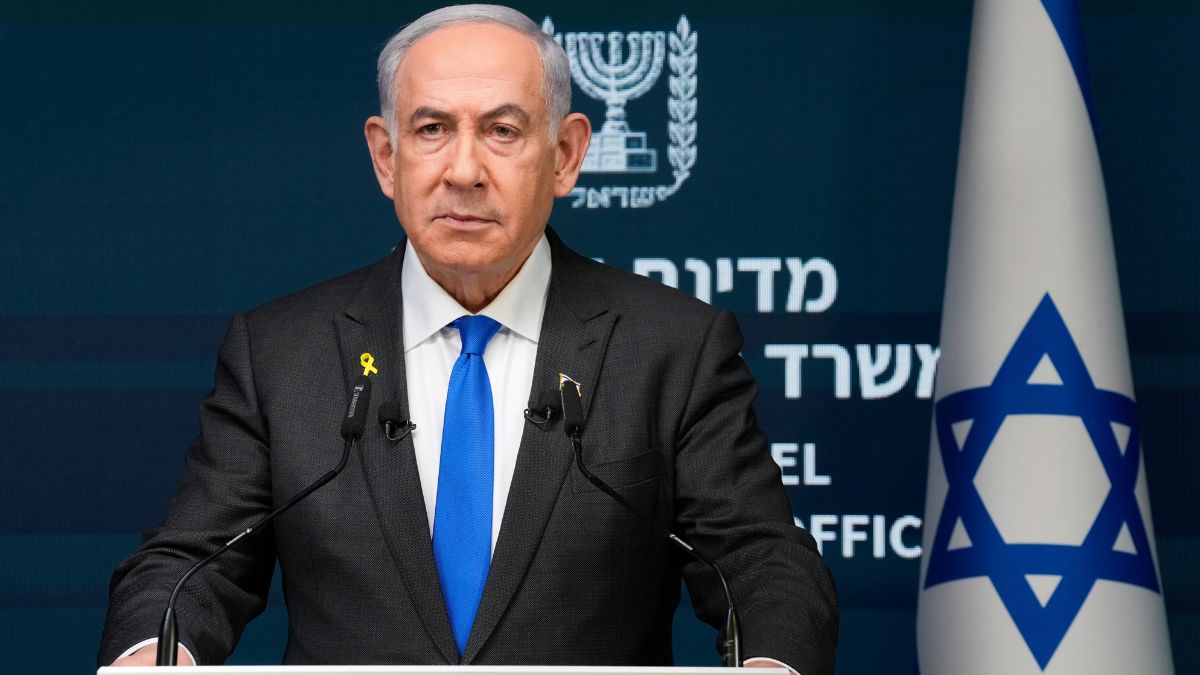Israel Prime Minister Benjamin Netanyahu said that the Jewish nation had “settled its score” by killing Hezbollah’s chief Hassan Nasrallah. On Saturday, the Israeli military confirmed that they managed to kill the militant group’s chief following their strikes in Beirut. The death marked the end of the 37-year-long reign of Nasrallah over the Lebanese militant group.
While several nations hailed Israel for killing a “terrorist”, Iran vowed to take revenge for the assassination. Amid all the chaos, many expressed concerns about whether the Middle East crisis is spiralling down. “We settled the score with the one responsible for the murder of countless Israelis and many citizens of other countries, including hundreds of Americans and dozens of French,” Netanyahu said in his first statement since Nasrallah’s death.
It is pertinent to note that Israel launched strikes in Lebanon after Netanyahu in his address to the United Nations General Assembly, dismissed the ceasefire proposal and insisted that Israel will keep on fighting. During his recent address, which came a day after the Hezbollah chief’s death, Netanyahu alluded to the 1983 bombings in Beirut that killed 63 people at the US embassy and 241 US marines and 58 French paratroopers at their barracks.
The Israeli Prime Minister said that as long as the “terrorist” (Nasrallah) was alive, he “would quickly restore the capabilities we had eroded from Hezbollah” in a series of recent operations. “So, I gave the order – and Nasrallah is no longer with us," he remarked.
Impact Shorts
More ShortsIsrael is at a turning point
Commenting on the wider conflict in the Middle East, the Israeli premier insisted that his country is at the cusp of “what appears to be a historic turning point” in the fight against its “enemies”. Netanyahu, who has been facing criticism over his aggressive war policy at home and around the world, stated that the killing of the Hezbollah leader was essential for Israel to achieve its overall goal.
“Nasrallah’s elimination is a necessary condition for achieving the goals we set: the safe return of the residents of the north to their homes and the long-term alteration of the balance of power in the region,” he said. Netanyahu emphasised that the killing of Nasrallah would also help facilitate the return of hostages seized by Hamas during the October 7 attack.
“The more (Hamas leader Yahya) Sinwar sees that Hezbollah will no longer come to his aid, the greater the chances of returning our captives," the Israeli leader averred. “We are winning. We are determined to continue striking our enemies, returning our residents to their homes and bringing back all our hostages. We do not forget them for a moment,” he concluded.
Iran vows revenge
Meanwhile, shortly after Nasrallah’s death, Iran’s Supreme Leader Ayatollah Ali Khamenei warned Israel that its assassination of Nasrallah would “not go unavenged”. Khamenei also announced five days of mourning in Iran and called for an emergency meeting of the 57-member Organisation of Islamic Cooperation. Not only this, Tehran also called for an emergency meeting of the United Nations Security Council.
In a letter to the UNSC, Iran’s envoy, Amir Saeid Iravani, wrote that Tehran “strongly warns against any attack on its diplomatic premises and representatives in violation of the foundational principle of the inviolability of diplomatic and consular premises and reiterates that it will not tolerate any repeat of such aggression.” Meanwhile, Russia also condemned the killing of Nasrallah and called it a “political murder” urging Israel to stop hostilities in Lebanon.
It is important to note that the death of Nasrallah also throws the fate of the Lebanese state into question. Hezbollah is deeply embedded in the Middle Eastern nation and controls a key share of the parliament. The militant group exercises influence over several ministries, such as the directorate of general security. Lebanon’s foreign policy is largely dictated by the group, particularly when it comes to neighbouring states such as Israel.
With inputs from agencies.
)